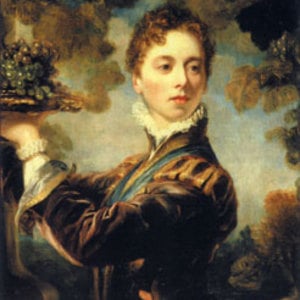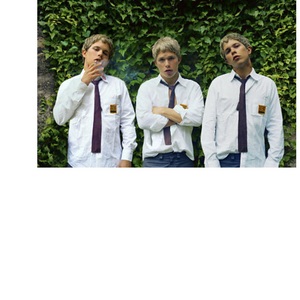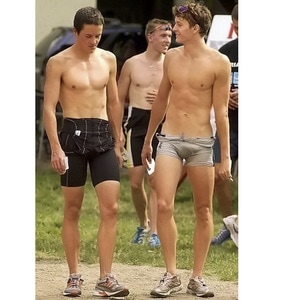Byron was newly arrived at Harrow for the summer term. It was called "summer" but in fact it was raining and it wasn't warm, which was typical English weather for June. He was on his bed reading. The other boys were playing with a hard ball in the hallway. It was ricocheting off all possible hard surfaces. It was making a lot of noise and would soon break a window. Breaking something was what they wanted. It would be thrilling to break almost anything, even though someone would be punished. Each one supposed it wouldn't be him who would be caught.
A boy, smaller than Byron, with blond hair, cautiously put his head around the corner into Byron's bedroom. He was fifteen to Byron’s sixteen. "Should we go for a swim? Get away from this?”
"No," said Byron, not looking up from his book.
"We could hire a pony in the village. Go down there together?" said Clare in his most encouraging voice. He knew it would be difficult for Byron to walk the whole way.
"No," repeated Byron.
"The thing is, I don't feel safe in here. Not with this game going on."
"Get used to it." Byron turned a page without looking up.
"You see, I thought we'd be stronger together. If we got out of here, I mean. Unitate fortior. And all that? In unity, strength," Clare translated. Most of the boys’ lessons were in Latin or Greek. They had little math and no science. Harrow's curriculum in the early 1800s, the time of Byron's story, was all translation from the classics. They also studied criticism of Greek and Roman literature. No chemistry, no biology, no history later than ancient Rome.
"I know what it means," said Byron dully.
"Of course you do. You're so much better at Latin than I am."
That's when it suddenly occurred to Byron. Was this boy flattering him? Was this boy trying to be nice to him? He looked up at Clare for the first time. Few of the boys were nice to him. They kept their distance. They made fun of his foot. “You’re in a different year. How would you know whether I was any good at Latin? Or not?” Byron’s words were hostile, but for the first time he looked into Clare’s eyes, to see if he could read Clare’s mind.
Clare felt the beam of Byron’s first glance and shivered. “Oh,” he said, casting his eyes down to the wooden floor in embarrassment after his split-second eye-to-eye connection with Byron. “People do talk.”
“What do they say?”
“That you’re no good at football.”
Byron went back to his book with inward disappointment. He was careful not to show it. “I see.”
“That you’re no good at cricket.”
“Dismissed, Clare. You don’t need to clutter up my room.”
“But that in verse, there’s no one better.”
“What?”
“That’s what they say.”
“Who says that?”
“Our form master handed out some verse you’d translated from Catullus the other day.”
“What? I didn’t say he could take my lines!” Byron was indignant at the theft. Then, he reflected. Teachers did whatever they pleased. They didn’t have to consult him. Then he thought for a minute. He craved some more connection with this younger boy. Clare, for a brief moment, had not been treating him with the same contempt the older boys did. “Which ones?”
“Oh something where you compared a boy to the king of the gods. You compared this boy to Jove.”
“What? I don’t remember that. In any case, Catullus must’ve done it. I just translated it.” Byron thought he could see that Clare was beginning to blush. Why?
"Equal to Jove that youth must be." Clare recited. He glanced over at Byron to make sure he was listening. "Greater than Jove he seems to me."
Incredible thought Byron. This boy has actually memorized some of my worthless lines. “Hang on a minute, you haven’t got them quite right.”
“What?”
“No, it goes like this. See? Equal to Jove!” said Byron gesturing theatrically to the sky.
Clare giggled.
“Equal to Jove that youth must be,” Byron resumed. Then he looked directly at Clare’s bright eyes. Byron rested his own eyes there for half a beat before he said quietly “Greater than Jove he seems to me.”











Comments (2)
See all